Frankfort to Elkhorn: An imaginative stretch
Editor’s note: The conclusion to the 5-part, dual-author recounting of a 2-night mid-summer float on the Kentucky River. The Slackwater Paddle-venturists have rounded Frankfort, passed through Lock 4 and encamped at Steamboat Hollow, where the current author was visited by the ghost of Colonel George Morgan Chinn.
By Wes Houp
Lyle arose early, started coffee, browned sausage, chopped onions, garlic, and another carmen in the pan. The smell of sizzling pork wafted through each tent, and by 7:30 the camp was alive. I sat up in the tent for several minutes and thought it best to sit on last night’s encounter a little longer. After breakfast, we started to dissemble our constellation of tents, tarps and gear and pack kit and caboodle back into dry bags for the next leg. In the bottom of my kitchen bag I found a dog-eared copy of Kentucky: Settlement and Statehood, 1750-1800, by George Morgan Chinn. “Whose book?” I held it up for all to see.
“Not mine, but I’ll take it if you want.” Danny examined the cover and opening it to the title page announced, “Hey, man, this is an autographed copy.” Sure enough, there was Colonel Chinn’s signature. “A signed copy. You know, this book is out of print now. Better take good care. It looks like someone’s marked the important stuff.” I stuffed the book back in the bag, chalked its strange appearance and my strange encounter up to too much hootch, hauled my load back down to the canoe, and we pushed off en masse by 10:30.
The long float
Out on the mainstream, it was only a matter of minutes before Troy, Danny, and I were in the water, floating on our backs like sluggish, hairless sea otters, our boats tethered to our PFDs. You don’t make good time floating, but it sure beats late-July heat. Seeing and hearing our gesticulations of sheer joy, within fifteen minutes Gary, Lyle, and Josh joined us in our float.
One of my favorite quotes from Daniel Boone goes like this: “I explored for the love of nature, I’ve opened the way for others to make fortunes, but a fortune for myself was not what I was after.” It’s hard not to imagine an evolution of experience from Boone’s pioneering endeavors to our suspension in embryonic bliss. Boone suffered manifold perils and hardships so that one day, some two hundred plus years later, our fortune could be to drift carelessly down Central Kentucky’s aorta.
About a mile downstream, we swam over to the cascading mouth of some unnamed, spring-fed rivulet cutting a deep, narrow trough through the bank. We sat for a while in the cool, clear waters, listening to the soothing gurgle, and Danny climbed his way up the trough to note the lay of the land. He returned only a few minutes later holding the blade and stem of a rusted hoe. “Nothing of particular note up there. I brought you this agri-artifact, though, Wes.” To my approving grin, he tossed the aged implement in the bow of my canoe. What was Boone’s idea of bliss but a spacious, uncongested land, where a man might “tickle the soil with a hoe, and she would laugh you a bountiful harvest.” Consulting the maps, we decided to mount up and paddle another two miles to Grindstone Creek for midday snack.
“The Fabled Canelands”
The creek and towhead were part of the typical Kentucky River set. The creek itself was bone-dry, the rocky bar large enough to ground canoes and stretch legs. The foot of an old concrete ramp jutted out onto the bar, but the majority of its length had succumbed to the ever-shifting silts of time. Just above the bar, set back 30 yards from the bank, a small but dense canebrake obscured approach from higher ground. On any given stretch of river, canebrakes are also part of the standard set. But this one was different from all others I’ve experienced. This cane was as fat as a man’s arm at its base with each stalk reaching up 30 to 40 feet in height, reminiscent of those fabled canebrakes of Boone and Harrod lore. In the mid to late 18th century, when scouts and surveyors first made entrance into Central Kentucky, they marveled at the vast and seemingly impenetrable stands of cane, and understood its proliferation as a sign of the region’s incredible fertility. Standing amid such towering and gracefully uniform flora, I was reminded of Felix Walker’s account of entering Kentucky’s interior with Boone in March of 1775. They had camped for a night on the Rockcastle River, killed a bear for dinner, and then proceeded northwesterly:
“On leaving that river, we had to encounter and cut our way through a country of about twenty miles, entirely covered with dead brush, which we found a difficult and laborious task. At the end of which we arrived at the commencement of a cane country, traveled about thirty miles through thick cane and reed, and as the cane ceased, we began to discover the pleasing and rapturous appearance of the plains of Kentucky.”
We idled for a while in the rustling stalks, dwarfed by their reach, humbled in their shade, and imagined harrowing scenes of elusion and escape from angry natives by those early woodsmen, both pursued and pursuers having long since passed beyond the Kentucky River valley to the great unknown. After an hour or so, we made our break for Elkhorn.
Up on Elkhorn
Elkhorn Creek means many things to many people. Geologists might recognize the Elkhorn as an abandoned channel of the Kentucky, a deeply etched, oxbow memory of a restless, primordial river. Historians, like Col. Chinn, might recognize the creek as cultural genesis when, in 1775, “a party of men from Fort Harrod, camping on a branch of Elkhorn Creek in present-day Fayette County, on hearing of the first battle of the war at Lexington, Massachusetts, immediately dubbed their campsite Lexington, and vowed to see a city there someday” or when the Bryans settled in the fall of 1779 and formed Bryan’s Station on the North Elkhorn, just five miles north of Lexington. For T. Dionysius Clark, Elkhorn was “the aristocrat of the Kentucky’s branches.” Its forks and mainstream flow through some of the richest land in the state, and not surprisingly some of the commonwealth’s wealthiest families claimed its banks for their provincial dynasties.
Poets, like Whitman, might see in its waters one vision of American democratic identity and spirit, “A Kentuckian walking the vale of the Elkhorn in my deer-skin leggings…,” and painters, like Paul Sawyier, might see the reflection of a lover, Mamie Bull, in dreamlike, summer idyll. John Filson, in The Discovery, Settlement and Present State of Kentucke (1784), identified the Elkhorn as “a small river which empties into Kentucke…about fifty miles long, and fifty yards broad at the mouth.” For us, it was still unexplored territory and the end of our journey.
We approached head-on from Elkhorn Bend on the opposite bank of the Kentucky. Even at the mouth, you feel the current in bicep and lumbar. Once inside, we passed the ramps at Still Water Campground, pushed on toward the first shoal and were relieved to see Troy dismount his yak and lead it by the reins through swift, ankle-deep current. One by one, we followed suit. We plowed up-creek, crossing through chest-high water, struggling to make way, laughing, falling, until we rounded a sharp bend (the backside of the ancient Kentucky’s severed oxbow) and finally found dry-footing on a large shoal extending beyond the viewshed on the eastern bank.
Intrepid camping, take two
We banked our crafts, and after a quick survey of the surrounding environs, determined that the manicured field just above the rocky shoal would suffice for a campsite. The field, which extended out to highway 127 in the front, looked to be a piece of municipal property. Two crude and overgrown baseball diamonds were set side by side near a large metal building that looked to house heavy machinery. The backside of the property, where we’d squatted with our gear, tapered to a narrow point overlooking the creek. Having been recently mowed, the ground was forgiving, level and soft with a generous layer of thatch. Tent-raising was easy. An old flatbed trailer made for organized unfurling of our kitchen gear, and two dilapidated but functional folding banquet tables made for graceful stovemanship.
Soon the Coleman twin-burner blossomed with blue flame, and the pound of Amish sausage surrendered its fat with minimal protestation. Dinner was yet another variant of river rat stew. From a foundation of rendered sausage, we fleshed out a hearty anatomy with yellow and white fingerlings, onions, garlic, black-eyed peas and kale, one quart of home-made tomato sauce, two large red carmens, and a half-pint of home-made jalapeno relish. After 30 minutes boiling time, a pound of chicken livers helped fortify the concoction. By nightfall, we were feasting again. By eleven, having passed around the Hendrick’s more than once, and lacking the requisite womp-energy, we slumped off to tents, each finding his own downhill path to slumber.
Visitation, take two
When I woke up, Lyle and Josh were already gathered around the stove, percolating coffee, frying thick slabs of bacon. I heard Troy, still in his tent, relating events of the previous night as Lyle and Josh listened with incredulous expression. “Someone was in our camp last night. I could barely make him out in the darkness rustling around our gear, and when I called out, he disappeared. I was groggy, thought I was dreaming and must’ve drifted back to sleep. I woke up a few hours later, and he was standing in front of my fucking tent looking at me through the mesh. I asked him what he wanted, what he was doing, and he grabbed my jug of water and stumbled off toward the highway. At that point, I got up enough nerve to get out of the tent, and I found my water halfway up the field.”
I was hesitant to ask the question pressing against my frontal lobe. But I finally spoke. “Was he wearing Marine Corps dress blues and white hat?” Troy thought for moment as he was pulling on his shirt.
“No. No, he wasn’t wearing a uniform. Like I said, I couldn’t see him real good, but he kind of looked…indigent. His cloths looked tattered. By the way he stooped and, well, hobbled, he looked like an old man, maybe a drifter off the highway.”
I checked the two dry bags I’d left overnight on the trailer. To my relief, the 1950 Smith & Wesson police issue .38 was still in the holster and wrapped in my rain slicker. Everything seemed to be accounted for…except… “Hey, did one of you guys borrow the Chinn book out of my kitchen bag?” No one had. “That bum must’ve stolen my book.”
Just then, Danny walked up, a toothbrush in hand. “I thought you said that wasn’t your book?” He had a point. Why should I get bent out of shape over loss of a book that magically appeared among my possessions? But then again, the book seemed, at least to me, to validate my encounter with the Colonel.
“You’re right. It wasn’t mine, but I sure would like to have it back. What would an old drifter want with a little-known, out of print history of Kentucky?” The silence seemed to suggest “nothing.” Was it just a random nick? Perhaps he had his hands in my bag, on my book, when Troy called out the first time, and startled, he withdrew quite unintentionally with the book still in his hand?
Lyle interjected, “Maybe he just needed something to read.” Perhaps, perhaps, I thought. And then again, maybe he was searching specifically for the book. What was it that the Colonel had told me about an elite group of past, present, and future river rats and immortality? Could he have been an apparition, too? Perhaps the ghost of some disgruntled rat from the distant past?
“Do you guys know of any river rats to have died in these parts?” No one spoke. Lyle continued forking bacon in and out of the pan. Troy tidied up his spot, rolling up his sleeping bag and mat. Danny brushed his teeth. Gary policed his gear, arranging it in a neat pile. Josh, who’d been sitting and picking on my trusty, cheap guitar, broke the silence.
“I think I know someone, but I’m not sure if the story’s fact or fiction. It was in the spring of 1780. A group of men left Bryan Station and headed for Bullitt’s Lick (in present-day Jefferson County) to boil salt for the settlers. They engaged a band of Shawnee and Wyandot near Leestown, and several men were wounded. One member of the party, Stephen Frank, was killed near the river, and his comrades came to call the place ‘Frank’s Ford’ from which the name Frankfort is thought to be derived.” Everyone had ceased activity and listened intently. A few minutes passed. A rain crow haunted the stillness with its mournful call. Could this scrounger, this indigent old man, have been the ghost of Frank? I waved off the thought. A phantom book? A phantom mist? Nonsense, I told myself, gathered my belongings and made ready for the trip home.
Warren Byrom performing Whitney Baker’s “Elkhorn Blues”: http://vimeo.com/27962143
Byrom performing “The Fabled Canelands”: [haiku url=”https://noclexington.com/wp-content/uploads/2011/10/02-The-Fabled-Canelands.mp3″ title=”The Fabled Canelands”]

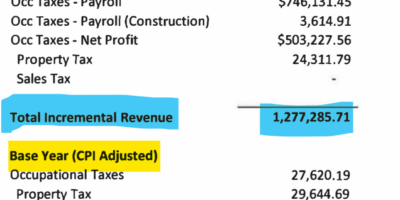
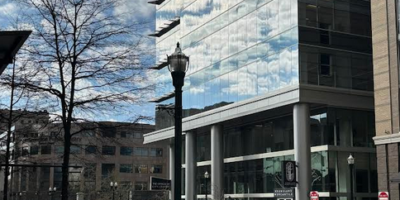
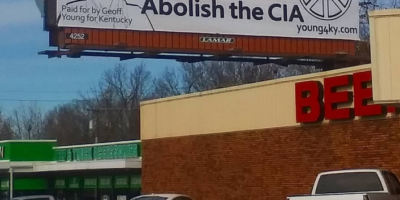
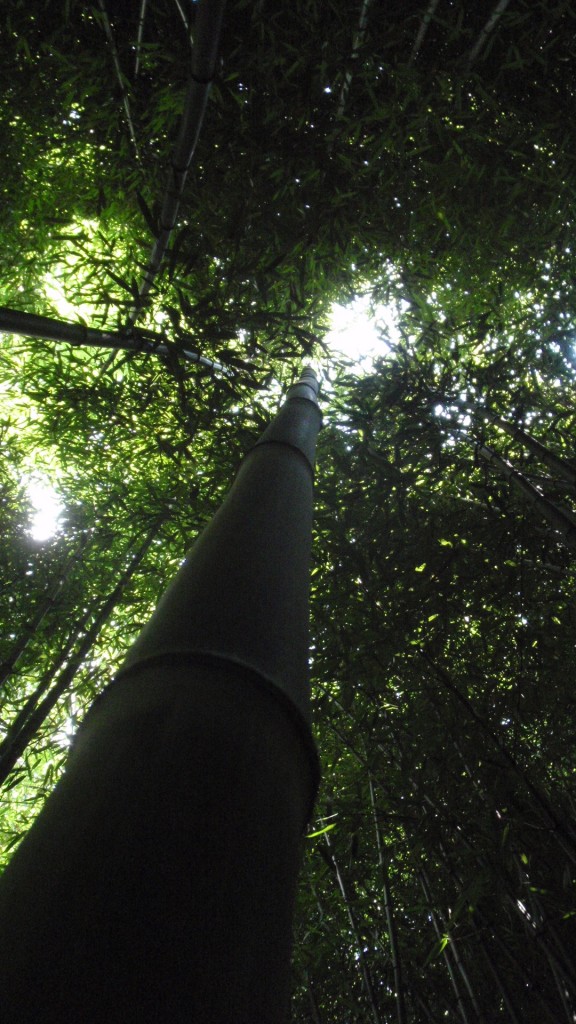
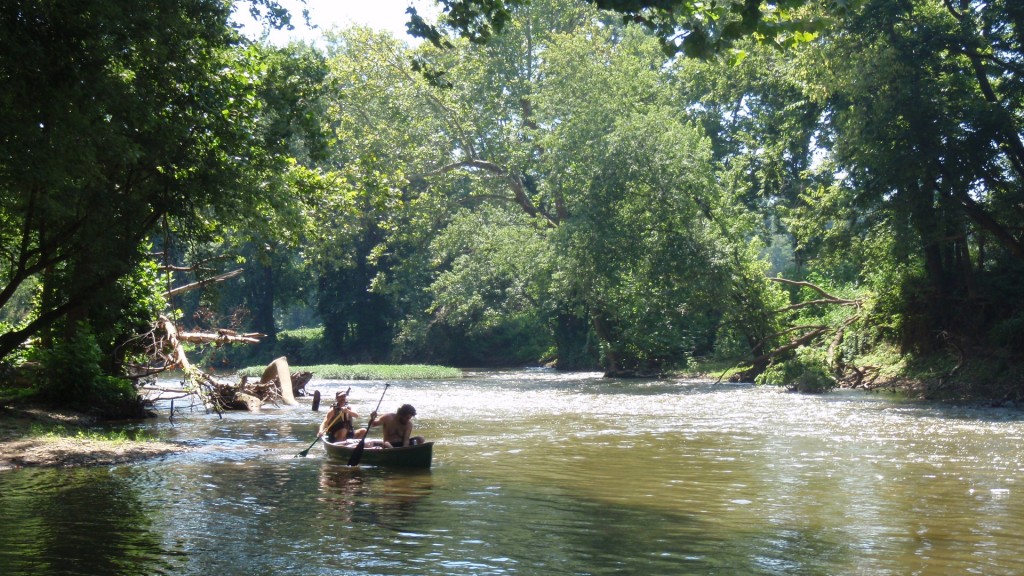
mark hoffman
I understood that thomas williams and simon kenton had a permanant camp after discovering the cane lands in march of 1775. Info. From the frontiersmam by allen eckert.
W. Houp
I suggest Warren Byrom be drafted into the slack water paddle venturist legion just so he can perform nightly tributes to the KY river watershed. This is just fantastic.